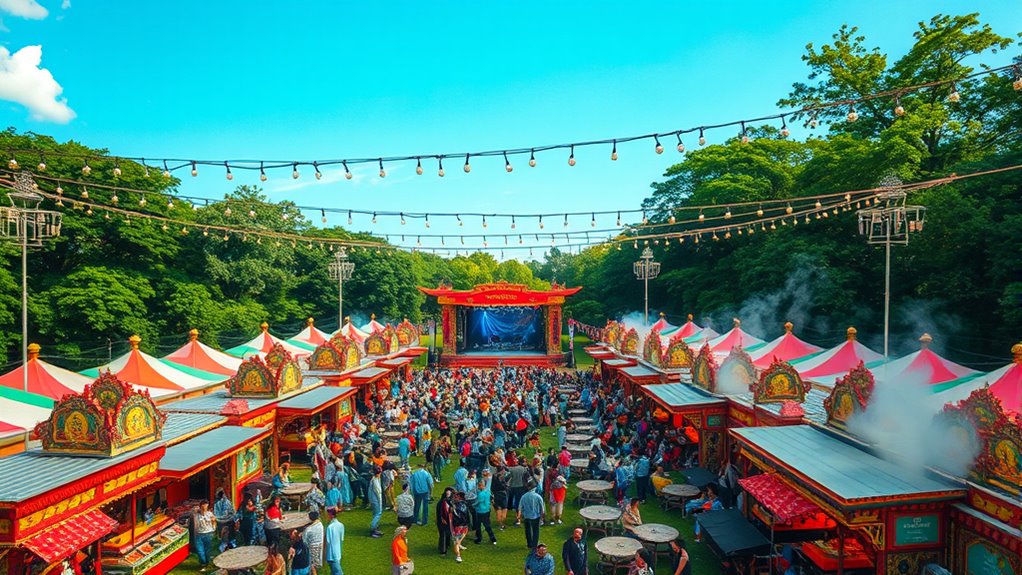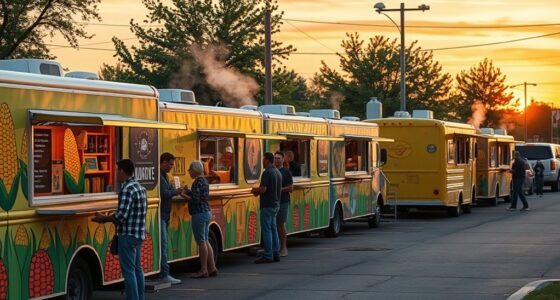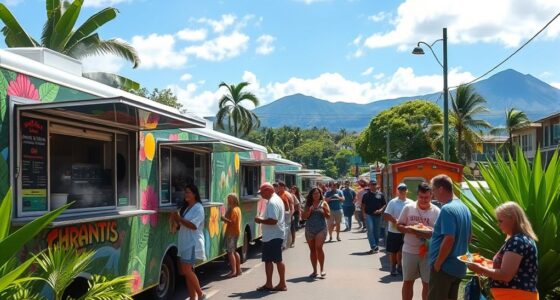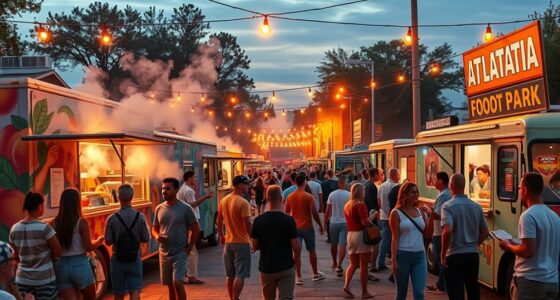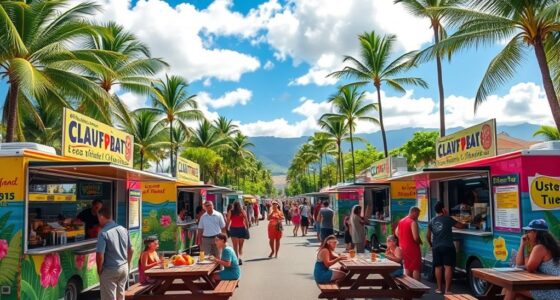Did you know that global food festivals attract millions of visitors annually, making planning for 2026 a complex challenge? As attendee numbers grow, so do expectations for seamless experiences, sustainability, and innovation. Your ability to coordinate vendors, manage logistics, and incorporate new technology will determine the event’s success. With so much at stake, understanding how to balance tradition, eco-consciousness, and modern engagement becomes essential—are you ready to navigate this evolving landscape?
Key Takeaways
- Establish early vendor partnerships and clear communication channels to ensure diverse food offerings and smooth coordination.
- Prioritize logistics planning, including layout design, infrastructure needs, and waste management for efficient setup.
- Integrate sustainable practices like eco-friendly containers, recycling stations, and renewable energy sources to promote environmental responsibility.
- Engage attendees with educational signage and activities that highlight the festival’s sustainability initiatives.
- Incorporate strategic marketing emphasizing eco-consciousness to attract a larger, environmentally-minded audience.
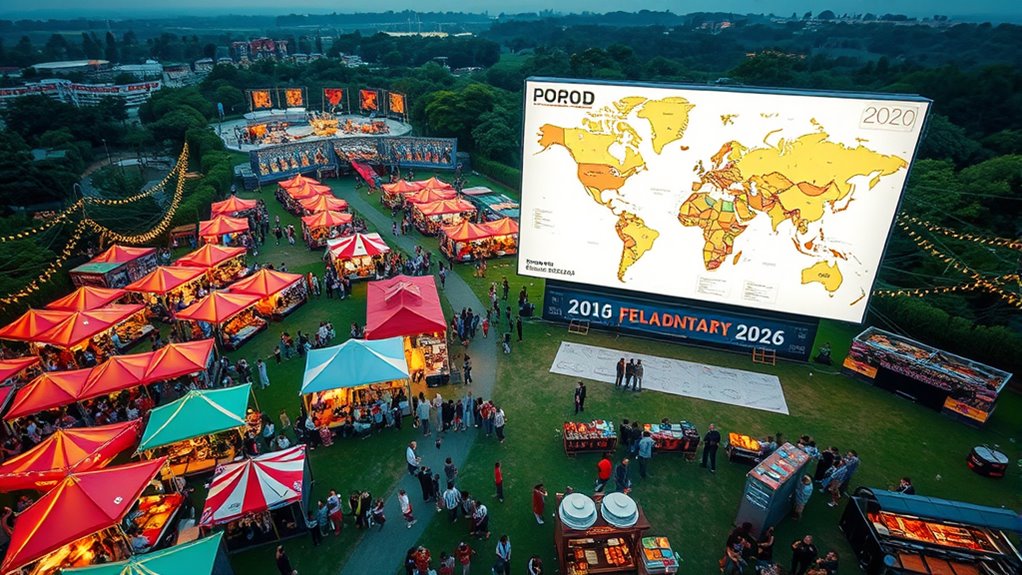
As food festivals in 2026 approach, planning becomes more essential than ever to guarantee a successful event. One of the most critical aspects is local vendor coordination. You need to establish clear communication channels early on, ensuring vendors understand your expectations and deadlines. Reach out to local farmers, artisans, and food providers well in advance to secure their participation. Building strong relationships with these vendors not only guarantees quality offerings but also fosters community support. You should create a detailed vendor agreement that outlines responsibilities, setup times, and sanitation standards, making the process smooth for everyone involved. Coordinating logistics such as space allocation, power supply, and waste disposal is essential to prevent last-minute chaos. Remember, a well-organized vendor lineup enhances the overall guest experience and boosts your event’s reputation. Leveraging AI-powered tools can streamline scheduling and communication, making coordination more efficient.
Alongside vendor coordination, adopting sustainable event practices is crucial. These practices not only reduce your festival’s ecological footprint but also appeal to environmentally conscious attendees. Incorporate waste reduction strategies like composting food scraps and recycling packaging materials. Encourage vendors to use eco-friendly containers and utensils, and set up clearly marked recycling stations throughout the venue. Power consumption can be minimized by utilizing energy-efficient lighting and equipment, and you might consider partnering with local renewable energy providers for sustainable power sources. Promoting carpooling or shuttle services reduces traffic congestion and emissions. Educate attendees about sustainability initiatives via signage and social media, making them active participants in your eco-friendly efforts. This commitment to sustainability can distinguish your festival and foster a sense of community responsibility.
Balancing local vendor coordination with sustainable practices requires strategic planning. You’ll need to communicate the importance of eco-conscious choices to your vendors and provide resources or incentives to facilitate these efforts. For example, offering discounts for vendors who use biodegradable packaging can motivate greener behaviors. Additionally, integrating sustainability into your marketing strategy highlights your festival’s values, attracting more attendees who prioritize eco-friendly events. You should also consider the event layout to optimize flow and reduce energy use, ensuring that vendors and attendees can move comfortably without unnecessary congestion.
Conclusion
As you plan for the biggest food festivals of 2026, remember that 70% of attendees prioritize eco-friendly practices. By fostering strong vendor relationships, embracing sustainable logistics, and highlighting your green initiatives, you’ll create a vibrant, responsible event that resonates with guests. Stay proactive, utilize AI tools, and promote community spirit—your efforts will not only delight food lovers but also set a new standard for eco-conscious celebrations. Together, you can make 2026 unforgettable and sustainable.
